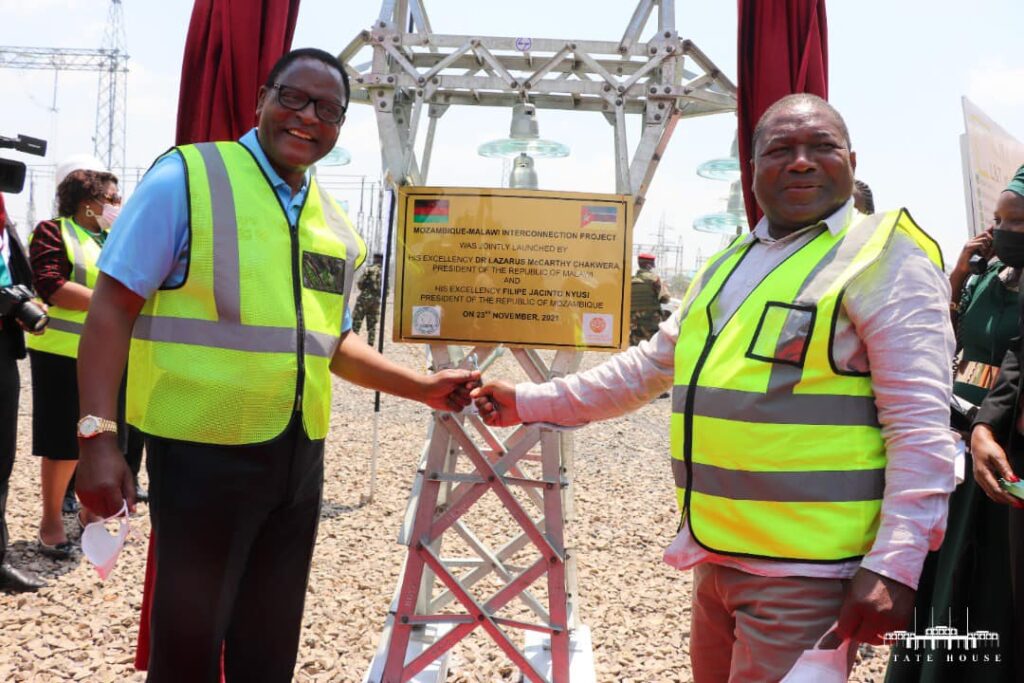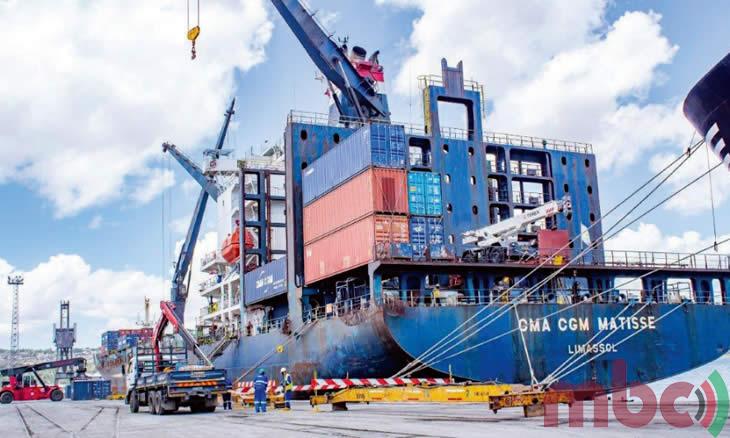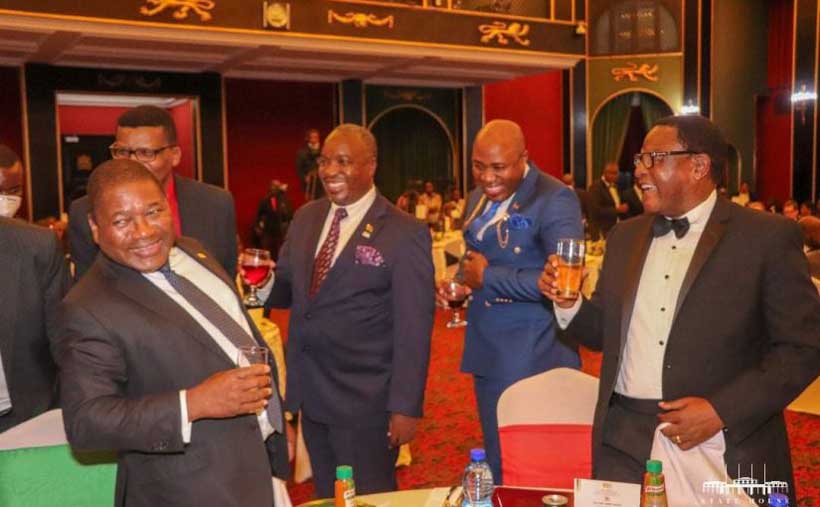By James Chirwa
Rationale

This write-up is meant to put facts in the correct perspective, assist in unearthing critical thinking, and induce positive judgment while reducing the susceptibility to taking risks that could negatively impact the management of Malawi’s economy.
Background
The background to this write-up stems from emerging issues surrounding the bilateral agreements between the Government of Malawi and the Government of Mozambique in key sectors such as transport, energy, and tourism. According to media reports, these agreements are being implemented in phases, depending on the preparatory work and the progress made so far. However, some facts have been misleading and misrepresented, resulting in one party reacting with clarifications that leave the public in a dilemma about the nature of the agreements.

Nacala Port Agreement
What began as a justification for travel to receive an honorary doctorate degree has turned into a controversy. The Mozambican government distanced itself from giving Malawi a concession at the port of Nacala, stating instead that Malawi had been allocated land 15 kilometers from the port for its transiting cargo. Essentially, this means the creation of a dry port within Mozambique, which, with critical thinking, translates into an increase in the landing costs of goods imported into Malawi. The double handling at both the port and the cargo center would ultimately drive up costs.
Interestingly, in 2017, the Provincial authorities in Beira offered Malawi land at Dondo for a dry port, a proposal turned down by the Malawi government due to its anticipated impact on the cost of goods. The dry port at Nacala being advanced now is essentially a shift of the previously disrecommended dry port at Dondo. The previous regime had recommended constructing the dry port in Nsanje, and this was reflected in the Rail Road Transport Master Plan.
Notably, there has been no joint communique between the two governments regarding this dry port. In diplomatic terms, this indicates that there was no formal agreement as the Malawi government seems to suggest.
It is also important to remember that there is a Tripartite Agreement between Malawi, Zambia, and Mozambique concerning the increased use of Nacala port. It would be crucial to understand what Malawi makes of this agreement and how it fits into its broader economic strategies.
Energy Agreements
The Malawi-Mozambique Interconnector Project, commonly referred to as the MAMO Project, was initiated under former President Peter Mutharika in 2015. It involved two critical agreements—the Operational Systems Agreement and the Wheeling Agreement—signed between 2017 and 2019 through the respective agencies of EDM (Mozambique) and ESCOM (Malawi). The World Bank, KfW, and others are financing the project, which was initially slated for completion in 2021 but has since been extended to allow for adequate financing and the finalization of the servitude.
The current regime has only signed a power purchase agreement for 150 megawatts, reduced from the 1,000 megawatts planned under Mutharika. This reduction stems from Malawi’s current economic constraints, including a foreign reserve cover of less than a month. Interestingly, the plan had envisioned future upgrades to 2,000 megawatts, with the potential for Malawi to sell excess power to Mozambique.
Another crucial point is that Malawi receives concession fees for coal transiting through the country on its way to Nacala. This fee was raised from $4/ton to $9/ton under Mutharika, with about 14 million tons of coal being registered this year.
It is vital to assess the overall trade-offs involving the power purchase agreement, the dry port at Nacala, and the concession fees, as these decisions could have significant economic consequences for Malawi in the long run.
Transport Agreements
Road
Malawi and Mozambique have long cooperated on road transport, with several key regional road connections in place. These have been enhanced by the development of one-stop border posts, which Malawi signed with Mozambique in 2018, specifically at Calomue-Dedza, Zobue-Mwanza, Milanje-Mulanje, and Chiponde-Mandimba. Similar agreements exist with Zambia at Mchinji-Chipata and Tanzania at Karonga-Songwe.
Rail
Rail transport has also seen progress, with a Tripartite Agreement between Malawi, Mozambique, and Brazil involving Mota Engil and Vale Logistics. This agreement enabled the construction of a rail connection from Tete, Mozambique, through Malawi to Nacala. An addendum signed in 2018 included provisions for maintaining sections of the railway from Nkaya to Mchinji and from Nkaya to Luchenza.
However, the section from Luchenza to Nsanje remains a challenge due to topographical difficulties, even though it is Malawi’s lifeline to connect the railroad to Beira via Nsanje. The Transport Master Plan proposes establishing warehouses at Bangula in Nsanje as an interim measure to support the dry port in Nsanje, with cargo transported by road to other parts of the country.
Air
Malawi has a Bilateral Air Service Agreement (BASA) with Mozambique, and Malawian Airlines was scheduled to begin flights to Mozambique in October 2018. However, this did not materialize due to Ethiopian Airlines’ influence, as the latter is a shareholder in Malawian Airlines and prioritizes its own routes. Unless the Malawian government reduces or offloads Ethiopian Airlines’ shareholding, the monopoly will continue, blocking efforts to boost tourism by opening air travel between the two countries.
Water

Malawi and Mozambique share borders on Lake Malawi and the Shire River. Developing water transport systems on these bodies could significantly enhance tourism and foster meaningful interactions between the two countries and the global tourism industry.
However, the Malawian government has created a gap by declaring that the Shire-Zambezi Waterway is no longer a priority, despite its inclusion in the Malawi Growth and Development Strategy. This shift contradicts the law that established the National Planning Commission, which mandates that all planned developments must be continued by successive governments. The previous administration had reached an understanding to start official engagements on the use of the waterway for tourism, which could have substantially contributed to Malawi’s GDP.
Conclusion
These issues—spanning transport, energy, and tourism—present a complex web of agreements and trade-offs that must be carefully assessed. The power purchase agreement, the dry port at Nacala, and the concession fees all need to be balanced to ensure that Malawi is not at a disadvantage. The absence of formal agreements, the handling of economic partnerships, and the future of these bilateral projects should be critically evaluated to safeguard Malawi’s economic interests.
Verified Sources
The facts outlined in this story can be verified by the following authorities:
- Ministry of Transport, Malawi
- Malawi Energy Regulatory Authority (MERA)
- Port Authorities of Mozambique
- EDM (Mozambique) and ESCOM (Malawi)
- World Bank


